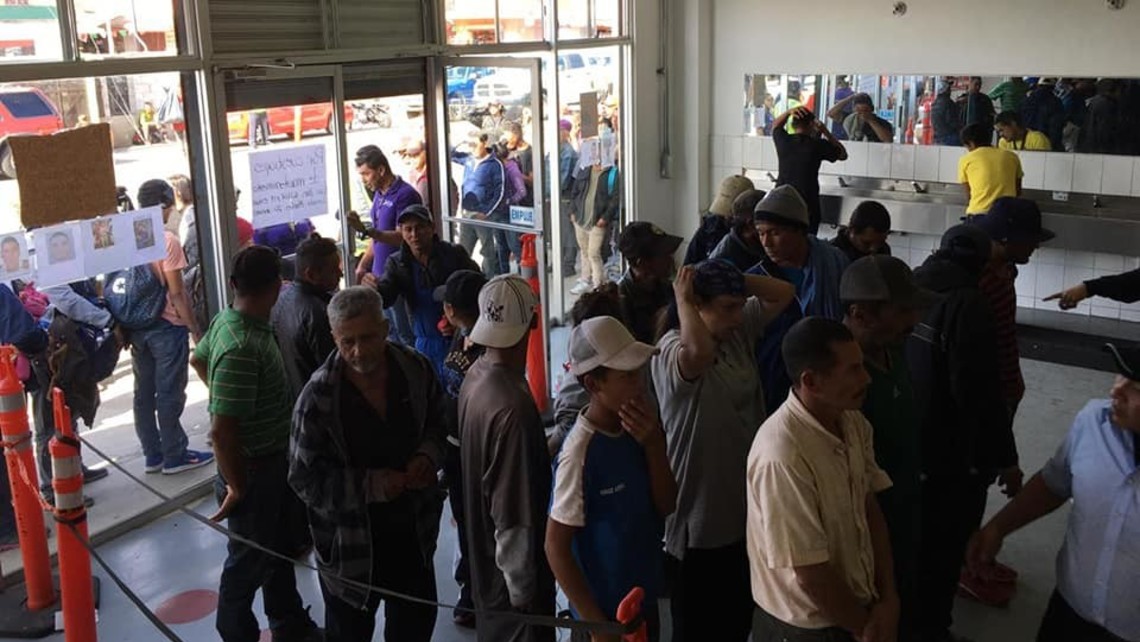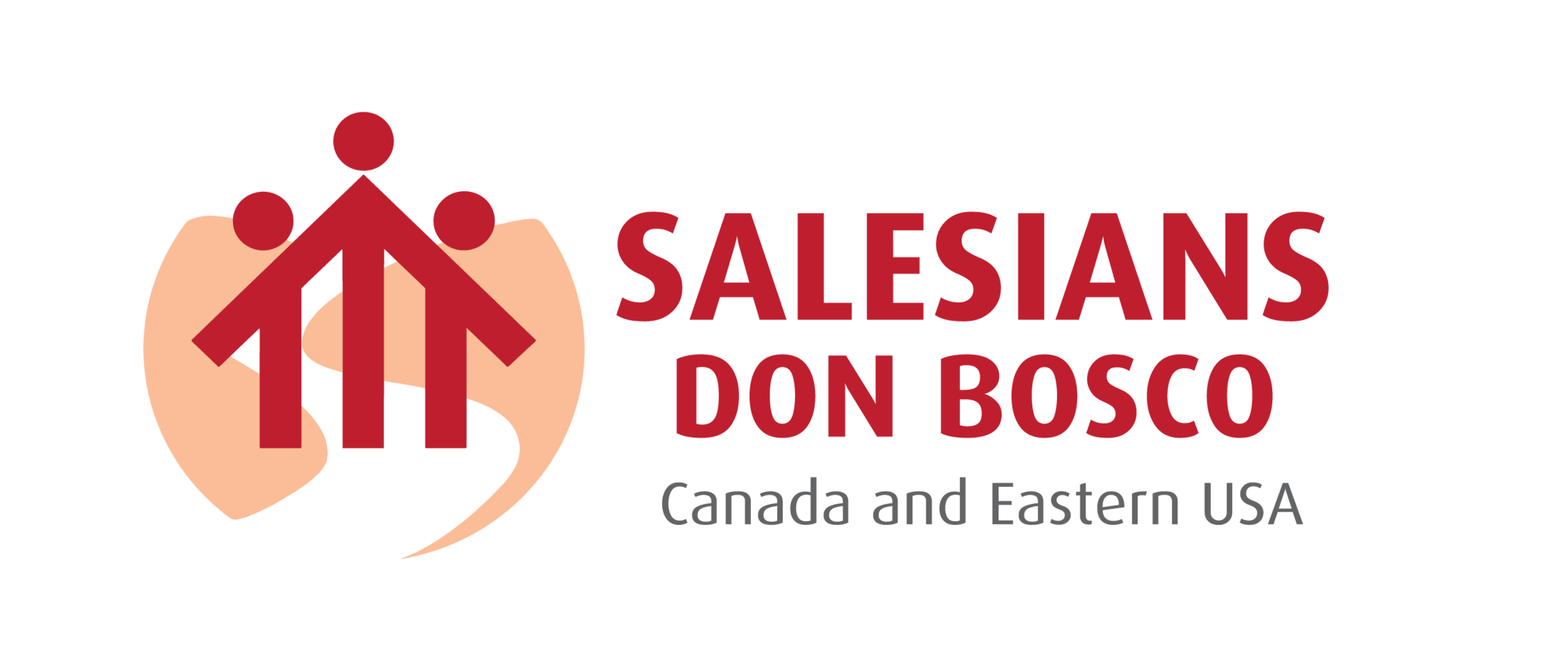
By Fr. Ernesto Hernandez Ruiz, SDB, and the Salesian Migrants Team
No one leaves home
unless home is the mouth of a shark….
No one puts their children on a boat
unless the water is safer than the land.
(Fragments from Home by Warsan Shire, Somali poet).
Beginning last October, a major movement of people began with Hondurans who left San Pedro Sula. Their main destination was the United States in order to exercise their right to asylum or at least to request recognition of refugee status in Mexico.
There are three caravans of migrants with a broad heterogeneous population in terms of age and social condition. The majority are young people—children and adolescents who travel in groups, and, many of them, with their families. They leave their country mainly because they fear the violence that originates in organized crime with the collusion of public authorities, or because of economic inequality, and a smaller number seeking family unification.
At the border between Guatemala and Mexico, civil society organizations in October counted 7,233 migrants: 1,307 girls, 1,070 boys, 2,234 women, and 2,622 men. Thus 32.9% were children and teens, most of them accompanied by their mothers or, in some cases, by both parents. Almost 200 unaccompanied adolescents were counted. Most of the adults are young people not older than 25.
So I dare to affirm the youthful face of the caravans: young people—girls, boys, and adolescents—who are fleeing high-risk situations like the people of Israel fleeing Pharaoh. For us Salesians they are today’s poor and needy young people mentioned in our Constitutions and Regulations.
An approach to the current migration on our continent
Historically, the peoples of the Americas have been formed from migrations, both within the continents and from outside them. In this past century, there have been vast movements of people, a reawakening of the migratory phenomenon; one of its current characteristics, however, is the environment of violence around it, whether at its outset, in its transit, in its arrival at the destination, or on a return journey. This situation allows us to see this phenomenon as a great humanitarian crisis, with traits of drama for the causes that provoke it, for the violence to which migrants are subject while on their journey, for the criminalization and discrimination in the places of destination, and for the inhuman conditions when people are deported.
At the beginning of this century, the main reason for leaving one’s country of origin was to improve one’s economic situation. But starting in 2010 departure from one’s homeland has intensified due to violence and a seeking to survive. In the case of Honduras and El Salvador, structural violence “drives” people, especially young people, to leave the environment which surrounds them. Fleeing from these contexts is the main reason why the members of these caravans now are leaving in groups, to be able to cross Mexico safely.
Comments have been heard that these movements were caused by people seeking to promote their particular political interests. Especially because of the timing of this most recent “Exodus,” prior to the mid-term elections in the USA, these movements have given a microphone to anti-immigration politicians and their claim that migrants are a threat to national security. This “Exodus” also occurs at a time when in our country (Mexico), we are in a period of transition between one government and another, which pressures one or the other administrators to take positions and actions that make themselves appear as heroes or the opposition as villains.
I think that today we must see beyond the political context, to see the inhumanity of the context and the humanitarian crisis that this Exodus represents. We must see it with shepherds’ eyes, with the eyes of a pastor-educator like Don Bosco, who was a man with vision and sensitivity toward young people at risk in the very complex political situation of his time, with its internal migrations from the country to the cities. He set up an exceptional program for these young migrants, which offered comprehensive solutions that have lasted and worked successfully for over 150 years.
Inspired by a presentation from the Missions Department of the Congregation and by the experience gained from various organizations committed to migrants, I propose the following actions for a Salesian focus on migrant children and youths:
Adequate support through an attitude of charitable welcome in the face of urgent needs
It’s basic to exercise charity in this emergency situation; humanitarian support is the first step that shows our dear young people our love for them. We direct our care toward the young, especially the poorest and most at risk, the unaccompanied. We recognize that this is a humanitarian crisis, and we offer our solidarity and support; we seek to lessen their needs and vulnerabilities. In collaboration with others or in their own spaces, we respond by setting up care centers or temporary shelters, making collection centers for food and clothing, collaborating with volunteers to give direct attention to migrants. In some places, we bring joy and friendship through opportunities to play, and we direct groups of young people from our works to assist the migrant children and teens.
Cooperation and networking are fundamental
Commitment to minors and young adult migrants requires effective cooperation. Therefore, while we value our qualifications and our field of knowledge, we recognize the limits of our knowledge and time, and so we team up with other Church, civil, social, and government organizations, putting at the center of our interventions the young people and not ourselves.
Education is the key element that we contribute to the networks
In addition to humanitarian aid, our charism leads us to act as educators, seeking complete, lasting solutions. This will not happen quickly, and we must think of solutions that imply formal and informal training programs and other education of people who wish to remain in our country for a long time or permanently.
Promotion and protection of the rights of minors and young adults
Migrating in Mexico is not a crime; migrants are irregular, not illegal. They have the right to education, food, health care, justice, and security, etc. And, even more important, for us they are sons and daughters of God our Father; they have a divine right to a dignified life. We promote these rights and protect them so that they can develop themselves with dignity. We also remember that the request for international protection (asylum or refuge) is a right that cannot be manipulated by the interests of the state.
Social integration
In recent days, opinions have been presented by the Mexican state, and civil society in general, that show a heavy mantle of prejudice, stigmatization, racism, and xenophobia. If these migrants are looking for a place where they can live in better conditions (in many cases, recognizing that leaving their country has been their only choice for survival), we must start a campaign against these discriminatory attitudes and form a welcoming community, encouraging an openness that offers a place where they can exercise their rights, grow, and be integrated. This implies opening our spaces, inviting them to experience the joy of the oratory, to be part of our groups, and inviting all to accept them as part of our community, brought together by God.
In conclusion, let’s open our doors, arms, and hearts to foreigners who have left their communities with the hope of finding a more dignified life, where their rights are recognized, respected, and guaranteed. As Salesians of Don Bosco, we reaffirm our mission: building bridges and not walls, so that those who have suffered so much, children and adolescents, will be heard and respected. To this end, we offer our support, and we encourage everyone to maintain a strong (Salesian) identity and to be involved in the processes of inclusion, in a new context and in a process of true interculturality.
For more information, please visit www.boscomsm.com. See also www.infoans.org, Feb. 22, 2017: “The Salesian commitment for migrants at the International Migration and Peace Forum” with a link to the presentation in Italian by Fr. Martín Lasarte, SDB, and Fr. George Menamparampil, SDB. Moreover, please read the New York Times' coverage of the migrants, as well as this article.






